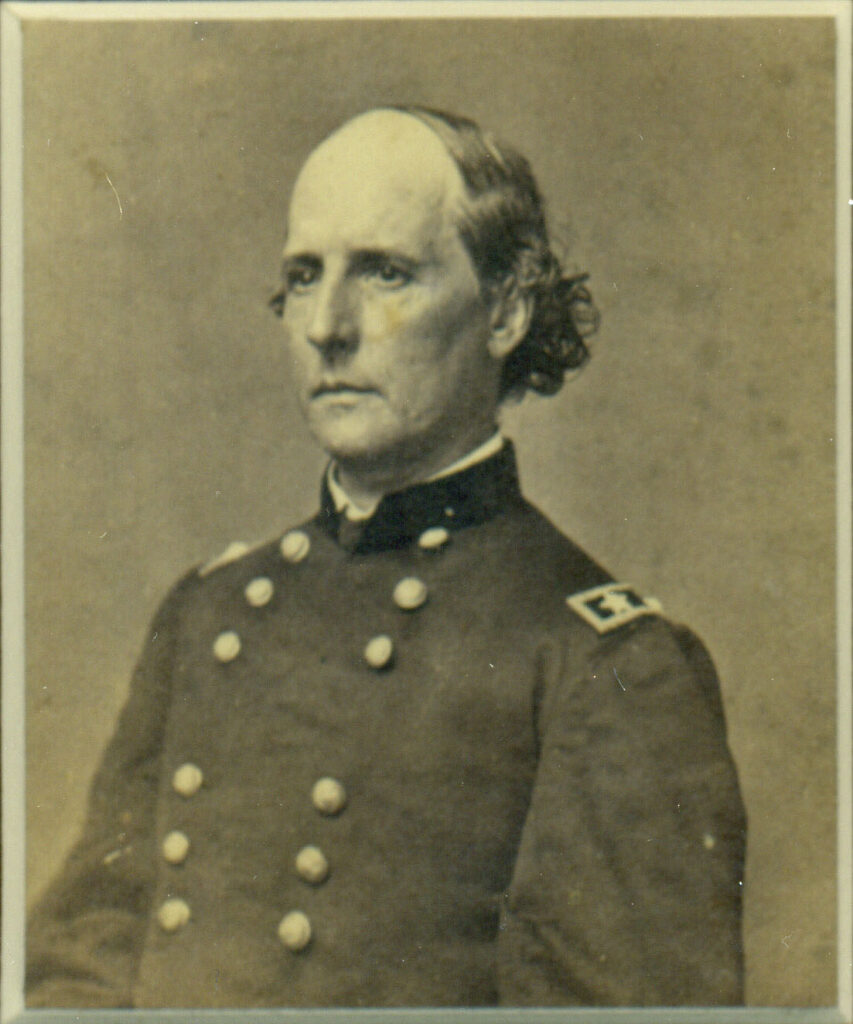Section #22 - The Southern States secede and the attack on Ft. Sumter signals the start of the Civil War
Chapter 284: Lincoln Decides To Reinforce Both Ft. Sumter And Ft. Pickens
March 28, 1861
The Reports From Charleston Tip The Balance For Lincoln On Sumter

Stephen Hurlbut and Ward Lamon have spent two days visiting Charleston before writing up their report and getting it to Lincoln on March 28.
In walking around the city, Hurlbut is struck by the total absence of the Stars & Stripes flying on ships in port. Instead they all bear the Palmetto insignia of South Carolina or the new seven star flag of the CSA.
Hurlbut visits three times with seventy-one year old James Petigru, a former Attorney General for South Carolina, who has known him as a young boy. Petigru says that he is the last remaining Unionist in the city and that nothing will change that fact. The only question left is whether the South will be allowed to go in peace or whether a civil war will follow.
Hurlbut hears this same story from his other political and business contacts and sums it up in writing.
Separate Nationality is a fixed fact… no attachment (remains) to the Union.
Furthermore, any attempt to reinforce Sumter – even with provisions alone – will lead to war, with attacks on Ft. Pickens and other federal facilities to follow.
Meanwhile, Lamon reaches Governor Pickens under the guise that he is an agent of the government looking for the means to evacuate the fort. Pickens allows him to visit Ft. Sumter, and he holds a ninety minute meeting with Major Anderson, who ends up believing that a peaceful exit is coming shortly.
After absorbing the news from Charleston, Lincoln again summons Scott for his reactions. Sounding altogether too much like his confidante Seward, the General recommends that both Sumter and Pickens be surrendered on the hope that the gestures will restore both states to the Union.
Upon hearing Scott’s proposal, the President later recalls being in “cold shock,” and he is sharp in his criticism of his army chief, even wondering if he should continue to trust him going forward.
In an evening meeting Lincoln shares Scott’s proposal with the cabinet. Montgomery Blair again speaks out against any show of weakness, directing his remarks at Seward, whom he sees as the real voice behind Scott. While others begin to show signs of wavering around continued inaction, the meeting breaks up without decisions, save for one man in the room.
That is Lincoln, who finds thirty-nine year old Lt. Gustavus Fox, Gideon Welles right hand man at the Navy Department, and orders him to pull together a detailed plan to reinforce both Ft. Sumter and Ft. Pickens.
March 29, 1861
The Cabinet Joins Lincoln In The Decision To Reinforce The Forts
The President reconvenes the cabinet meeting, minus Simon Cameron, at noon on Good Friday, March 29 – with a shift in mood immediately apparent, away from Seward and toward Blair… and Lincoln.
Like Blair, the Navy, says Gideon Welles, is in favor of reinforcing both forts, and he goes even further:
Armed resistance to a peaceful attempt to send provisions to one of our own forts will justify the government in using all the power at its command to reinforce the garrison…
Chase favors defending Ft. Pickens, delivering provisions to Sumter initially, and following up with reinforcements if the supply ship is met by force.
Bates is firm about supporting Ft. Pickens, but remains uncertain about what to do at Sumter, although agreeing that a decision “to either evacuate or relieve it” must be made.
Smith mirrors Bates on both counts, while saying he does not know if Sumter can be reinforced.
Seward continues to argue that any expedition to Sumter will trigger a war and should be avoided. But he also feels the groundswell in the room, and agrees that preparations should be made to fight in Florida.
What Lincoln hears in all of this is reinforcement for what he has now come at long last to believe.
The rebellion is not “artificial” as he thought. The South is not bluffing this time. Restraint and patience and the “mystic chords of memory” will not restore their place in the Union.
What lies ahead appears to be a civil war, and it is time for the North to begin to prepare for it.
He responds by ordering Navy Secretary Welles and War Secretary Cameron to send an expedition to Ft. Sumter, to arrive as early as April 6.